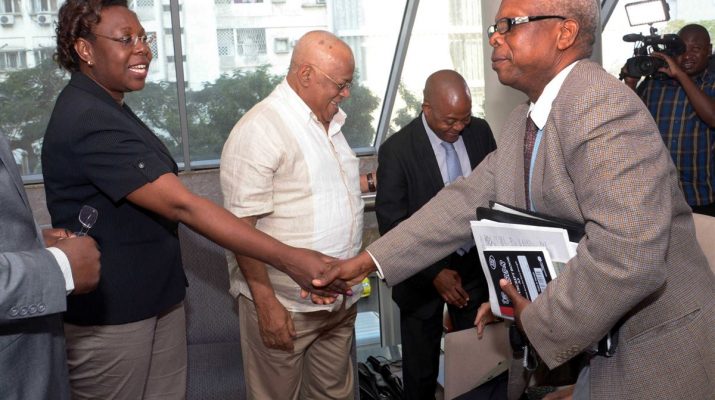The killing of a prominent opposition leader on October 8, 2016, in Maputo puts ongoing peace talks in Mozambique at risk, Human Rights Watch said today.
Jeremias Pondeca, 55, was a former member of parliament representing the opposition party RENAMO. He was also a member of a team preparing a meeting between President Filipe Nyusi and the opposition leader Afonso Dhlakama to end the current military and political hostilities between RENAMO and the government.
At least nine other people have died across Mozambique since March 2015 in what seem to be politically motivated killings, which the authorities have failed to properly investigate or prosecute.
“The killing of Jeremias Pondeca is not only a horrendous taking of a life, but is a blow to efforts to resolve Mozambique’s dangerous political situation,” said Daniel Bekele, Africa director at Human Rights Watch. “The government’s failure to genuinely investigate past killings provides space for the latest terrible crime.”
Pondeca was shot dead during his morning jog at Maputo’s main beach, Costa do Sol, police reported. His family only learned of his killing a day later, after contacting the authorities to report his disappearance and being told that an unidentified body with bullet wounds had been taken to the morgue. RENAMO officials later informed the media that Pondeca had been killed.
Preliminary police investigations suggest that four men who had been following Pondeca by car, approached the victim and fired two shots at his head and one at his abdomen before fleeing. His car was found parked nearby.
The peace talks, which were due to resume on October 10, were put on hold following Pondeca’s killing.
Human Rights Watch has documented nine previous cases of apparent political killings since March 2015, in which the targets were officials from RENAMO, the ruling party FRELIMO, an outspoken academic who defended a controversial RENAMO petition, and a state official. Both parties have claimed that several other members of their parties have been killed across the country in the past two years.
Human Rights Watch spoke with witnesses to three of the killings as well as relatives and friends of the nine victims. All allege that the police had not conducted a comprehensive investigation into the cases. In some cases, the police failed to inspect and secure the crime scene before the evidence was compromised.
Human Rights Watch wrote to Attorney General, Beatriz Buchili, on September 12, enquiring about the steps her office had taken to prosecute some of the killings. As of October 10, Buchilli had not replied.
The Mozambican Criminal Investigation Police (PIC), which is the state body responsible for conducting criminal investigations, has publicly promised to investigate all nine cases. However, according to what the police told Human Rights Watch they have not concluded any of the investigations, nor have they been able to identify any suspects, not even for those cases that authorities blamed on RENAMO fighters.
“Mozambican law enforcement appears incapable or unwilling to seriously investigate apparent political killings,” Bekele said. “In either case, its repeated failures have created an environment of impunity and fear.”

